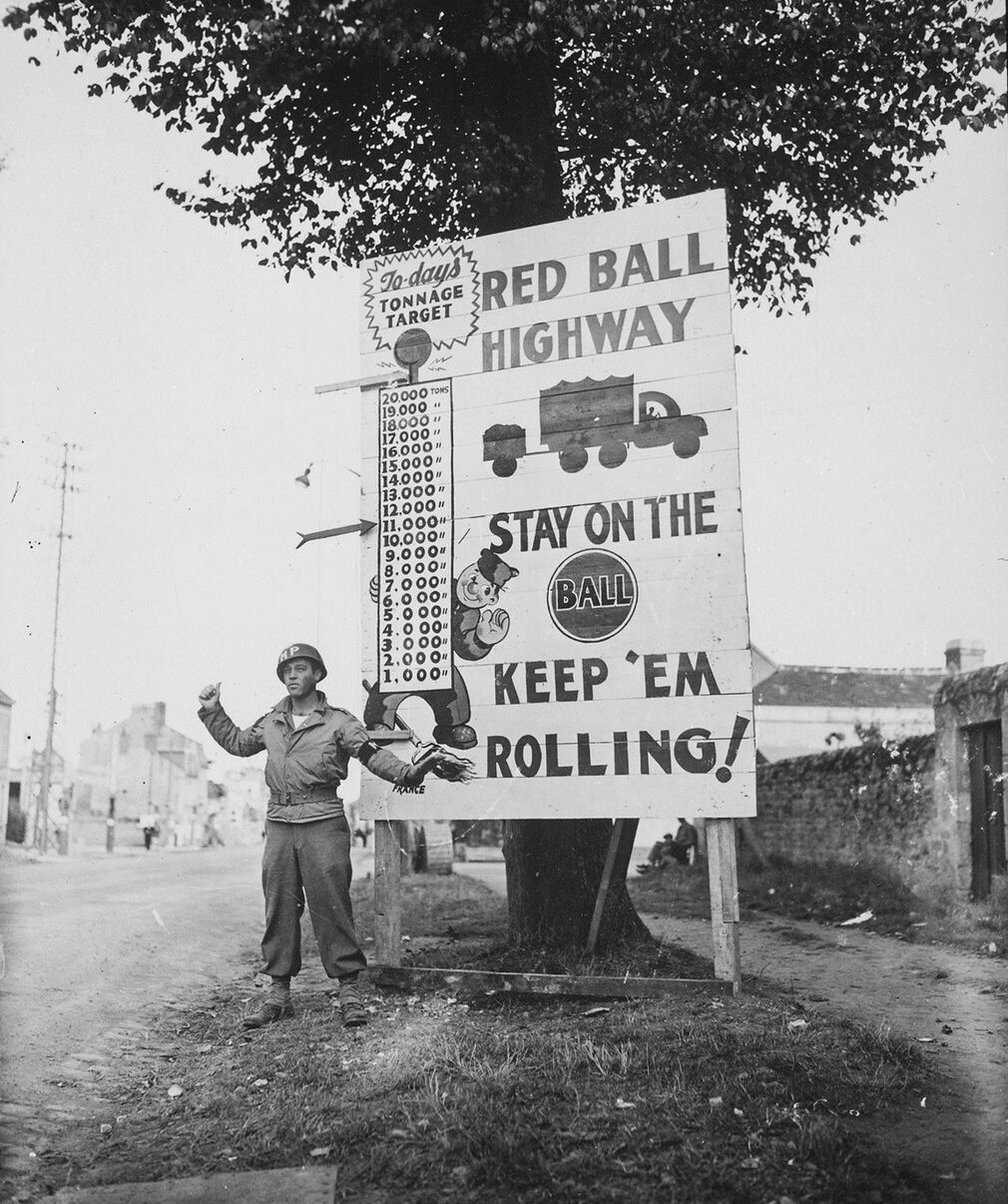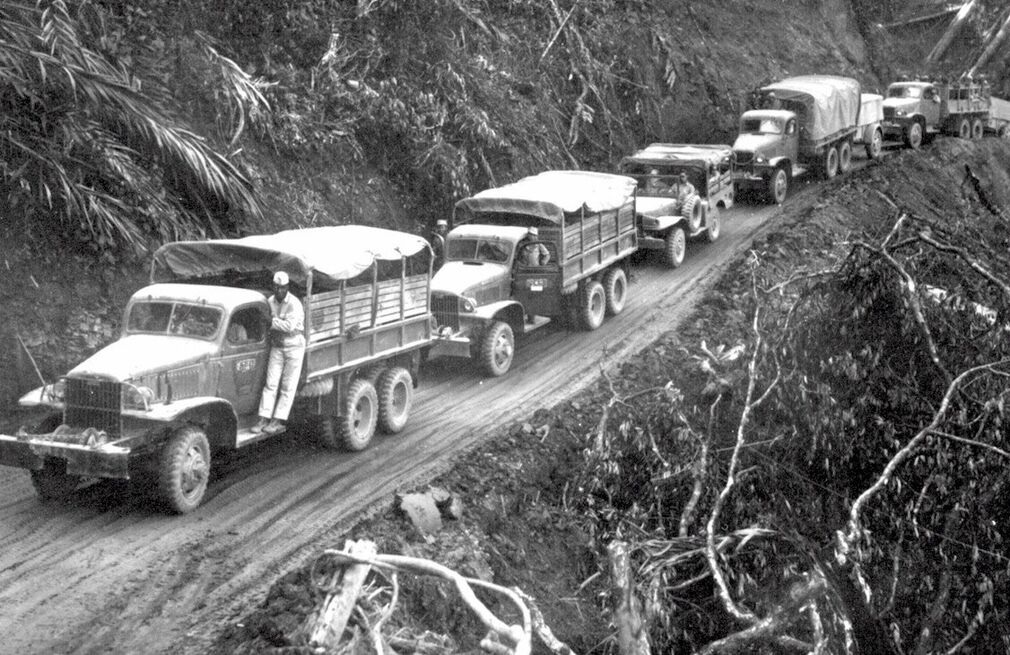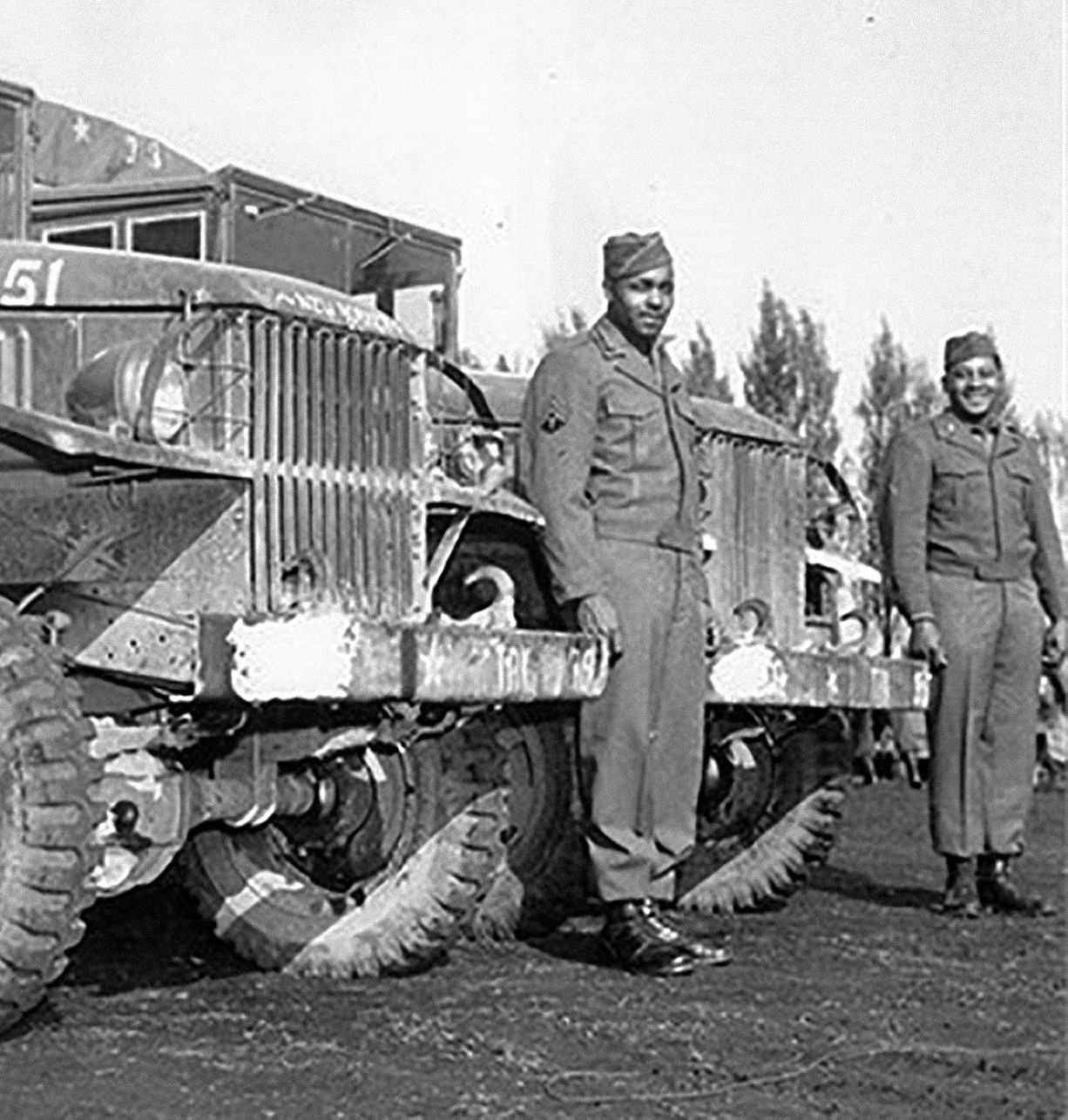Red Ball Express
On the 25th August 1944 a large column of 6,000 supply trucks was driven by African American military from the ports of Cherbourg and Antwerp in the direction of the Seine in France and the more northern transshipment sites.
In total 20,000 tons of materiel was necessary in order to maintain combat capability. Fuel was particularly important. The vehicles on the frontline used about 800,000 gallons a day. The trucks used daily about a million litres and the lack of fuel would affect frontline capability. Many more military were needed for the operation by road than was possible by rail but the routes were initially not secured. This manner of transport only ended from the middle of November in 1944, as then the usual methods of transport were available. One of the transshipment sites was in Luik from where South Limburg was provided with supplies.
The name Red Bull Express refers to a 19th century railroad term for express transport.


The QMSC had orders to make sure that more than seven and a half million soldiers in Europe were fed and clothed. The largest supply operation ever in history started with transport over sea and land, through ruined ports and heavily damaged roads in France and Germany.
The Red Ball Express went to and from with supplies to the troops. Many of the trucks went back and forth to Limburg. Day in and day out. There were more military needed for the Red Ball Express than for transport over sea or by rail, but the Red Express routes were initially not secured.
In 2008 eye witnesses from Limburg spoke about the black drivers of the Red Ball Express. They spoke of the repair shops in their neighbourhood and of the supply trucks that transported fuel. The black soldiers also helped to replace the 800 car tyres that suffered from the bad road surfaces. Every day about 300,000 gallons of petrol was needed and the African American soldiers transported this is jerry cans to the frontline troops.
Some of the supplies that arrived at the ports never made it to the troops. White soldiers pilfered some supplies which were sent back to family members in the US. An anonymous eye witness from Limburg, who was at the time working for the inspectors, reported that he saw this happen many times and that he had to draw up reports over the occurrences.
One of the drivers, Henri Vanlandingham reported that during the time that he was stationed in Berg in Limburg some of the food supplies ‘fell of the back of the truck’. The white officers from his unit turned a blind eye to the fact that food from the supplies was distributed to the local people, usually women and children who were suffering from malnutrition.
This method of transport only ended in the middle of November, when the usual transport methods were available.


